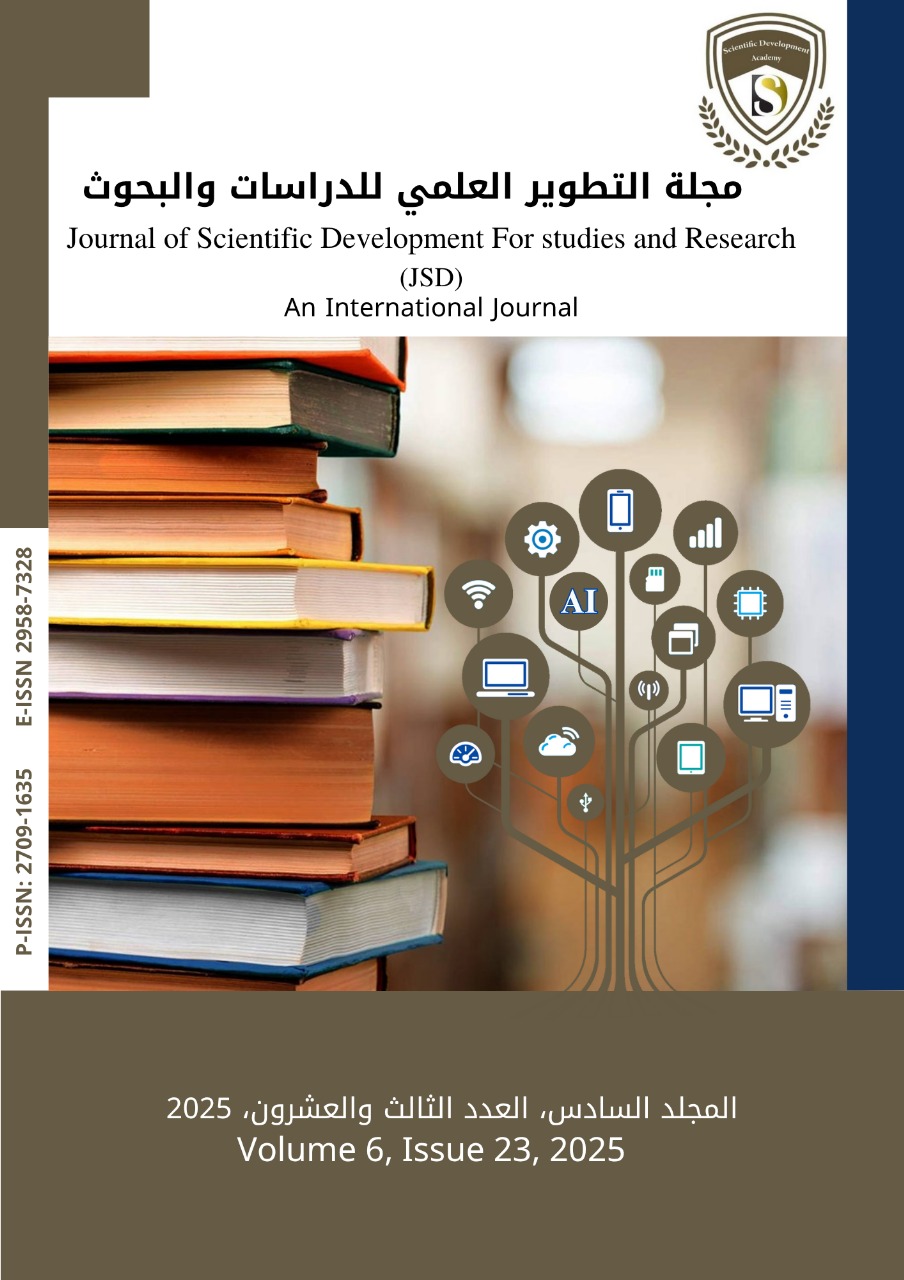دَوْرُ الذَّكاءِ الاصطناعيّ في تحويل النص العربيّ المكتوب إلى صوتٍ منطوقٍ
DOI:
https://doi.org/10.61212/jsd/416الكلمات المفتاحية:
البرامج-الآليات.، النّص المنطوق، النّص المكتوب، اللغة العربية.، ، الذكاء الاصطناعيالملخص
تُعدُّ اللُّغة العربيِّة من بين اللُّغات العالميّة التي تتميّز بخصائص فريدة وثراء عجيبٍ مكنّها من الوقوفِ والصُّمودِ أمام كلِّ التّطوّرات التكنولوجيّة الحاصلة والتكيّفِ معها، ويتجلّى هذا الصّمود والتكيّف من خلال تحدِّيات تتعلّق بغزو ما يسمَّى بالذَّكاء الاصطناعي الذي غزا الكثير من الأنظمة اللغويَّة والمنظومات المؤسسيّة، فامتداداتهُ أوسع وتأثيراتهُ أعمق وحركته أسرع، وهذا التَّحدي من أبرز التحدّيات التي نقفُ أمامها لاستجلاء واقع اللغة في ظلّ العصرنة، خصوصًا أنّ اللغة العربية تتميّز بالتركيب اللُّغوي الخاص بها كلغة اشتقاقيّة ثريّة بمفرداتها، سياقية في مجال تعبيرها، ممّا يجعلنا نتساءل:
-هل يُمكن تصميم نماذج ذكاء اصطناعي قادرة على التعرُّف والفهم الدّقيق للنّصوص العربيّة ومعالجتها معالجةً تنطلق من ثرائها كلغة للوصول إلى برمجتها وحوسبتها كلّيًّا.
تندرج تحت السؤال الأساسي أسئلة فرعيّة لابدّ من صياغتها:
-ما علاقة الذّكاء الاصطناعي باللغات عامّة وباللغة العربيّة خاصّة؟ وما تأثيراته في تعليم اللغة العربية لناطقين بها ولغير الناطقين بها؟
المراجع
التنزيلات
منشور
إصدار
القسم
الرخصة
الحقوق الفكرية (c) 2025 مجلة التطوير العلمي للدراسات والبحوث JSD

هذا العمل مرخص بموجب Creative Commons Attribution 4.0 International License.






























